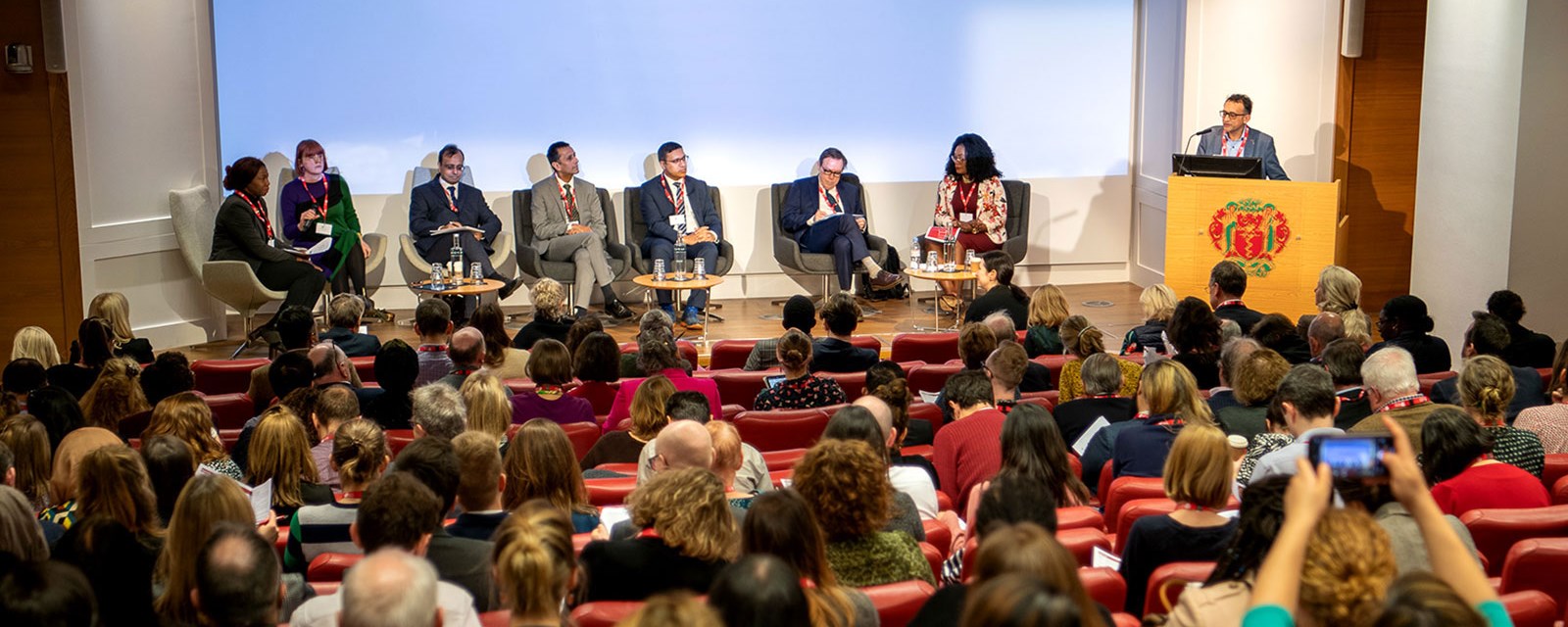Important Tips for Preparing and Making the Many of Conferences
Going to conferences can be a crucial chance for specialist development, yet the benefits are usually contingent on reliable preparation. Recognizing the seminar agenda and establishing clear objectives can substantially enhance your experience, while critical networking can result in rewarding connections. In addition, the preparation of materials guarantees you present on your own with professionalism and trust. However, the journey does not finish when the occasion concludes; the follow-up procedure is just as important for maintaining relationships and checking out possible cooperations. To browse these components effectively, one should think about numerous vital strategies that can transform a conventional meeting right into a valuable career milestone.
Research the Conference Schedule
Among the most vital steps in preparing for a conference is to extensively investigate the seminar agenda. Recognizing the program allows attendees to recognize crucial sessions, workshops, and audio speakers that align with their professional passions and goals. By assessing the timetable, participants can prioritize occasions that will offer one of the most value and understanding, making sure a tactical approach to their seminar experience.
Along with identifying appropriate sessions, looking into the agenda permits guests to recognize the styles and trends that will be addressed throughout the seminar. This knowledge can stimulate meaningful conversations and networking possibilities with peers and market leaders. It additionally aids in creating insightful concerns that can enhance interaction throughout Q&A sessions.
Additionally, knowledge with the agenda can assist in smoother logistics planning, such as handling traveling times in between sessions and making best use of chances for casual discussions during breaks. Guests need to also think about making use of tools offered by the seminar coordinators, such as mobile applications or online platforms, to remain upgraded on any kind of changes to the program. Comprehensive study ensures that participants are well-prepared to navigate the conference successfully, inevitably bring about an extra improving and productive experience.
Establish Clear Objectives
Establishing clear objectives is essential for taking full advantage of the value of going to a seminar. By establishing particular goals prior to the event, you can focus your efforts on areas that align with your professional aspirations and interests. Begin by identifying what you want to achieve; this can vary from getting understanding in a specific field, uncovering cutting-edge methods, or checking out potential collaborations.
Following, prioritize your objectives based on their importance and significance to your current projects or job trajectory. Think about the sessions you prepare to go to, the speakers you wish to hear, and the topics that resonate with your purposes. Having a distinct objective will certainly not only boost your interaction during the meeting however also allow you to assess the occasion's effectiveness later.
Moreover, establishing measurable goals can provide you with a structure for evaluating your progress. Aim to accumulate a certain number of understandings or actionable takeaways from each session. Ultimately, clear goals offer as a roadmap, assisting your seminar experience and ensuring that you obtain significant benefits that prolong past the event itself.
Network Tactically
Attaining your conference goals usually rests on efficient networking. To optimize your links, strategy connecting with intention. Begin by recognizing essential individuals or organizations pertinent to your objectives; this could include prospective partners, advisors, or industry leaders. Use social networks systems, such as LinkedIn, to study participants and initiate conversations before the event. This pre-conference interaction can lead the means for purposeful interactions during the event.
During the meeting, be aggressive. When introducing yourself, be succinct and clear about your professional history and goals to make a memorable impact.
Follow up after the meeting with personalized messages, revealing gratitude for the conversation and recommending future collaboration. This can assist strengthen the link and keep the dialogue open. Inevitably, why not look here strategic networking has to do with constructing lasting connections that can sustain your specialist development and enhance your seminar experience. By being purposeful in your technique, you can transform short lived encounters right into beneficial opportunities for collaboration and improvement.
Prepare Your Materials
Organizing and preparing your products well beforehand is crucial for a successful conference experience. Begin by identifying the essential documents and resources from this source you will certainly require, such as your discussion slides, handouts, calling card, and any type of appropriate research materials. Conferences. Make certain that all electronic data are conserved in quickly accessible layouts and supported in several locations, consisting of cloud storage space
Next, consider developing a meeting folder, either physical or digital, that consolidates all essential info. This could include the conference schedule, a checklist of essential contacts, and notes on workshops or sessions you intend to go to. Familiarize on your own with the seminar layout and timetable to optimize your time and networking chances.
If you are offering, rehearse your product completely. This will not just increase your self-confidence however additionally aid you identify any kind of voids or areas that require refinement (Conferences). In addition, prepare a succinct lift pitch regarding your work or company to facilitate networking

Comply with Up After the Occasion
Following up after the occasion is important for enhancing links made throughout the seminar. This procedure not only strengthens partnerships but likewise opens up the door for future cooperation and possibilities. Begin by assessing the business cards and notes collected during the meeting to recognize key get in touches with and subjects of rate of interest.
Send out personalized follow-up e-mails within a few days after the seminar, revealing appreciation for their time and understandings shared during conversations. Recommendation details conversations to remind them of your interaction and strengthen the individual connection. Suggest a follow-up meeting or phone call to discover potential partnerships or share more information relevant to their rate of interests. if appropriate.
Additionally, think about linking on specialist networking systems such as LinkedIn, which can promote recurring communication and partnership structure. Share appropriate posts, sources, or insights that may benefit your calls, showing your value and engagement in the area.

Verdict
To conclude, efficient prep work and engagement at meetings can substantially boost specialist growth. By systematically researching the agenda, establishing clear purposes, networking actively, and arranging necessary materials, guests can optimize their meeting experience. Diligent follow-up after the occasion serves to strengthen connections and explore prospective cooperations. Implementing these techniques promotes an effective setting for accomplishing specific objectives and progressing professional networks within the industry.
One of the most essential actions in preparing for a meeting is to extensively look into the meeting schedule. By examining the routine, participants can prioritize events that will provide the most value and insight, ensuring a strategic strategy to their meeting experience.
Having a distinct function will not just improve your interaction throughout the seminar but also allow you to review the occasion's effectiveness later.
Eventually, clear goals offer website link as a roadmap, leading your seminar experience and guaranteeing that you acquire considerable benefits that expand beyond the event itself.

Comments on “The Impact of Attending International Conferences on Global Networking”